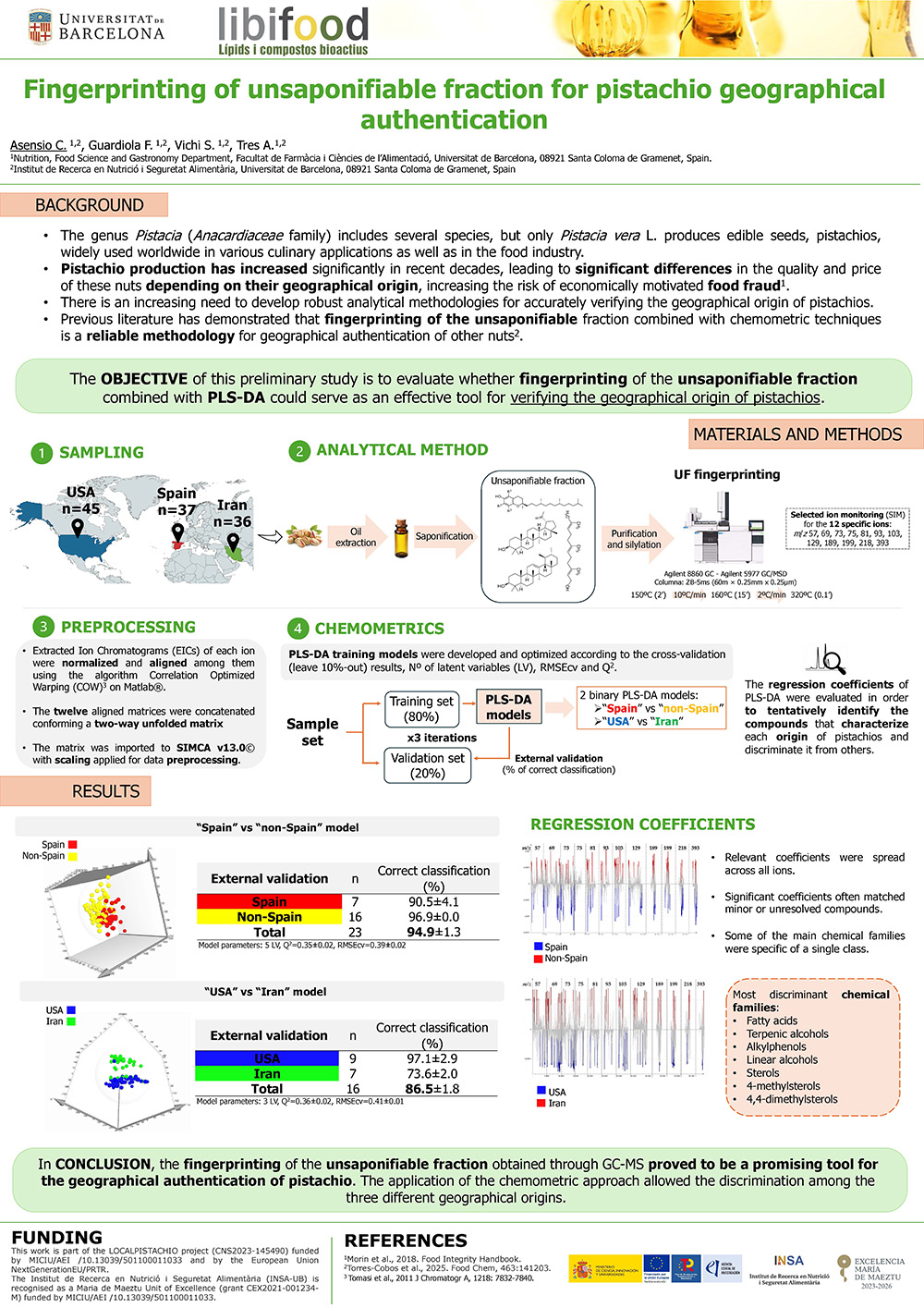The genus Pistacia (Anacardiaceae family) includes several species, but only Pistacia vera L. produces edible seeds, commonly known as pistachios. These seeds are widely used worldwide in various culinary applications as well as in the food industry. Pistachio production has increased significantly in recent decades, leading to significant differences in the quality of these nuts depending on their geographical origin. These variations, along with disparities in food safety standards and high import/export rates, have intensified the risk of economically motivated food fraud. Consequently, there is an increasing need to develop robust analytical methodologies for accurately verifying the geographical origin of pistachios.
This study proposes a fingerprinting approach methodology for pistachio geographical origin authentication. The unsaponifiable fraction of a set of 118 pistachio samples from different origins (Spain, USA, and Iran) was analyzed by gas chromatography-mass spectrometry (GC-MS) and processed with Partial Least Squares discriminant analysis (PLS-DA). Two classification models were built to distinguish all samples between „Spanish“ and „non-Spanish“ classes, and to further classify „non-Spanish“ samples into Iran or USA pistachios.
PLS-DA score plots demonstrated satisfactory clustering across all categories. The models were validated both internally and externally, achieving correct classification rates above 87 % and 84%, respectively. Results ensured the method’s promising potential for pistachio geographical authentication and could be used in industry routine analysis, supporting official controls to mitigate fraud in the pistachio sector.
